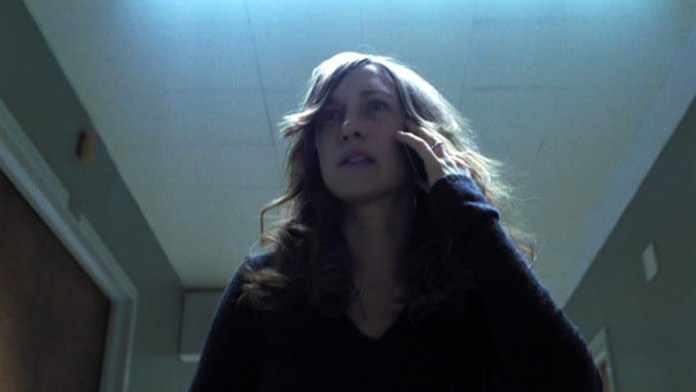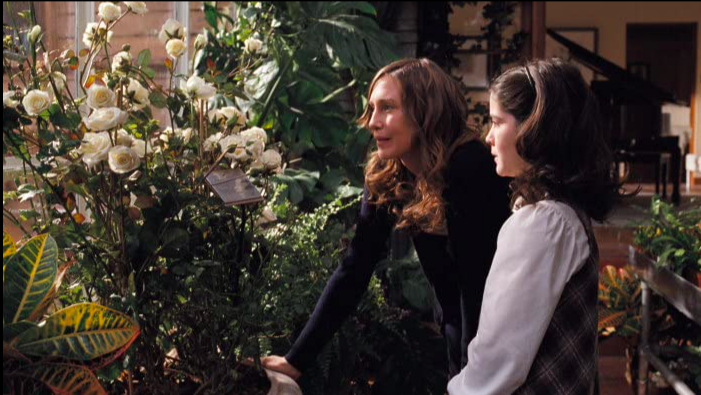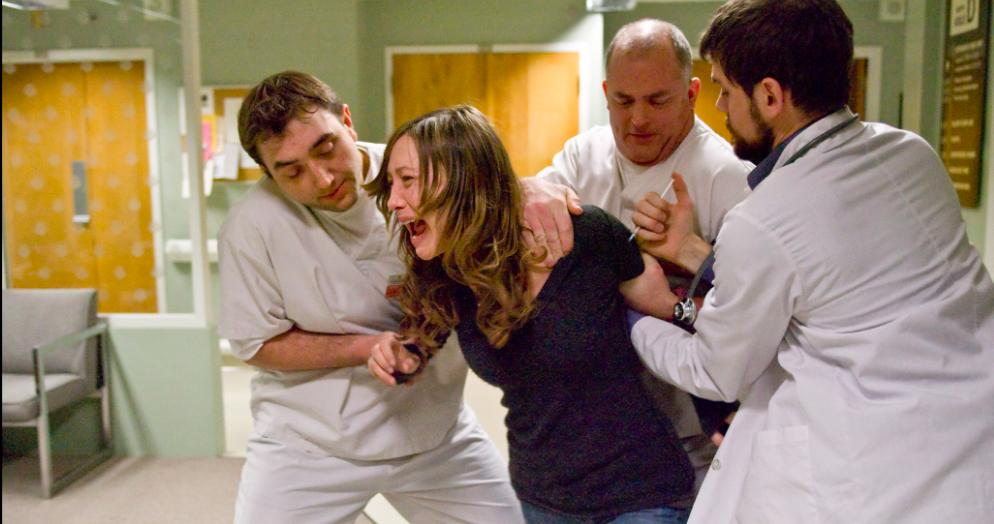‘Orphan’: A Surprisingly Beautiful Examination of Motherhood and Tragedy

Editor’s note: This article contains detailed descriptions of miscarriage and discussion of abortion.
At first glance, Jaume Collet-Serra’s Orphan falls into the “killer kids'” subgenre of horror along with The Bad Seed, The God Son, and Eskil Vogt’s The Innocents. After a devastating miscarriage, Kate (Vera Farmiga) and John Coleman (Peter Sarsgaard) adopt a nine-year-old girl named Esther (Isabelle Fuhrman) who has a deadly secret. Despite its low body count and relative lack of gore, Orphan manages to stand out among the more bloody films of the late aughts. That’s thanks in large part to a shocking twist and a fantastic performance by Fuhrman as the titular orphan.
But within the story of a murderous child lies a moving exploration of motherhood and pregnancy loss, a complex topic not often seen in mainstream horror. Kate is a woman recovering from a heartbreaking loss. Her story is similar to my own. With several memorable scenes, Orphan ripped open my own emotional wounds. It also gave me a blueprint for how I could begin to heal. Kate’s story is not only relevant to my own life, but to the lives and rights of anyone who can get pregnant in America today.
Orphan opens with a heavily pregnant Kate checking into the hospital to give birth to her third child, a baby they’ve decided to name Jessica. At first, her labor seems to be progressing normally. But the sight of blood on the floor foretells a darker fate. On the delivery table, Kate learns that her baby has passed away. She must continue with the painful and terrifying labor knowing that baby Jessica is already gone.
As she looks at the bloody corpse, she jolts awake and we learn that thankfully this is only a dream, her mind’s way of processing a terrible event. We later learn that what actually happened is less dramatic, but no easier. Baby Jessica died shortly before her due date and Kate was forced to carry her body for sixteen days. It’s a horror she wouldn’t wish on her worst enemy. Though Kate’s horrific labor is only a dream, this nightmarish experience is a reality for millions of people, myself included.
In 2008, I found out I was pregnant. It was not a planned pregnancy or a happy relationship, but I was thrilled about the baby. I’d always wanted to be a mom. While this was not at all how I thought it would happen, I decided to embrace destiny and move forward with the pregnancy. At my first ultrasound appointment, I excitedly prepared to hear my baby’s heartbeat for the first time. We waited as the tech shifted instruments around, trying to find the best location. But the continued silence and her darkening expression told us something was wrong. An appointment with my doctor later in the day confirmed the worst; the baby had stopped growing. I had had an incomplete miscarriage, meaning the fetus was dead, but my body had not yet expelled the tissue. I was devastated. But through my tears, I had a decision to make.
There was no way to tell how long my body would hold onto the dead cells putting me at risk for sepsis and deadly infections. I could have waited for my body to expel the fetus in bloody cramps. That’s what most think of when they hear the word miscarriage. Or I could have an abortion to end the pregnancy on my own terms. Then I immediately knew what I wanted to do and I just wanted the whole nightmare to be over.
I didn’t want to spend the next few months knowing I could begin hemorrhaging at any moment. I wanted to have control over when and where I went through one of the worst days of my life. And I didn’t want to risk an infection that might jeopardize my ability to have children in the future. And I wanted to start grieving. My baby had already died. I wanted to move on.
So I decided to have an abortion. I was prescribed medication that would induce strong cramps in my uterus that would push the fetus out. It was similar to labor. I was so upset at the pharmacy that my mom had to stand in line for me. Instead, I curled up in a waiting room chair for the hour it took her to reach the window. Then I dragged myself up to join her. I filled the prescription and went home.
Within hours of taking the pills, my body was wracked with massively painful cramps. I had essentially gone into labor and the muscle contractions occurred at regular intervals for around six hours. Years later, while in labor with my daughter, I was surprised at how similar the experiences were. I spent the night screaming and rolling around on the floor in pain. The only relief I could find was in continuously covering my abdomen with towels soaked in hot water. Finally the miscarriage began. I started bleeding and passed a mass of cells. It was finally over.

Though this was one of the most traumatic experiences of my life, my story is mild in comparison to many others. I am lucky that I miscarried so early in my pregnancy. I was able to take medicine in the privacy of my home. And I had family that supported me through it. Had I been further along, I would have had to labor in a hospital or have a D&C to remove the dead cells. It could have been life-threatening. It could have looked like Kate’s nightmare.
While this was terrifying in 2008, it would have been quite different in 2022. I live in Tennessee and my state has a trigger that has now gone into effect after the fall of Roe v. Wade. The medication I took is now heavily regulated. Given the strict penalties for violating my state’s abortion ban, there’s no telling whether my doctor would have felt safe prescribing the medication. I can only imagine what hoops I may have had to go through to get the prescription filled. There’s no way to know what damage delaying treatment might have caused. It’s one thing to say “to protect the life of the mother”. But who gets to decide when a pregnant person’s life is in danger? How close to death’s door do we have to be before we deserve help?
Our first introduction to Kate is in the midst of this devastating nightmare. But the majority of Orphan takes place at least a year after the miscarriage. Time has passed and she is trying to move on with her life. We learn that for a while, Kate tried to dull the pain with alcohol. She developed an addiction that caused her to lose her job and threatened the life of her children. This is a coping method I also employed with similar results. Both Kate and I somehow managed to stop drinking and pull our lives together. But when the stress hits, we are both tempted to go back to the bottle. We have both found our way into therapy and that seems to be helping. Kate and John are preparing to adopt another child. It’s this stress that seems to have brought on the nightmares.

I saw Orphan in theaters shortly after its release. While the opening was shocking, it’s another scene that moved me to tears. Early in the film, Kate reads a bedtime story to her daughter Max about baby Jessica, the little sister she’ll never get to meet. Max is deaf and has taken out her hearing aids after crawling into bed. The scene unfolds in serene silence as Kate signs the story of a little girl who waits all night for her baby sister to come home from the hospital only to learn that she’s died in her mommy’s tummy. Baby Jessica is now a beautiful angel in heaven. This scene is stunning in its tender simplicity.
After losing my baby, I buried myself in distractions desperately trying to avoid thinking about what had happened. Watching Kate make the sign of an angel floating up to heaven was the first time I allowed myself to think about saying goodbye to my own baby. I watched Kate confront the worst thing that had ever happened to her with a sad smile and a tearful hug. Suddenly my own recovery seemed possible.
The most striking aspect of this touching scene is how intimate it is. The silence enhances this feeling of privacy. We feel as if we’ve been given the gift of a rare peek into their private lives. Kate also has a beautiful rose bush and plaque with a lovely poem dedicated to Baby Jessica that speaks of acceptance and loss; of heartbreak but also of healing. Kate and trying to move on with her life. Though her drinking is destructive and her decision to adopt Esther has deadly consequences, both of these choices are Kate’s to make. No one else has the right to tell her what she should and should not do in the wake of a devastating loss.
If Orphan was made today, it might have a much darker plot. Instead of being able to quietly grieve at home with her family, Kate might be accused of purposefully ending her pregnancy. She might have to spend the days and weeks of her recovery submitting to an invasive and humiliating investigation of her body and personal life.
Had my own miscarriage occurred today, I may have been prevented from taking the drug that I credit with preserving my ability to have children. After dragging myself up to the pharmacy window, I could have been met with judgment from a person who refused to give me the medication because of their own personal beliefs and the superiority given to them by a government determined to control my body. What Kate goes through in Orphan is a nightmare, but it would have been much worse if it happened today.

In her diary Kate mentions having to carry a dead baby for sixteen days, living every minute, every second, with the pain of pregnancy knowing that a horrific moment awaits her in the near future. And that is what we are forcing women to do by denying them health care. Abortion is the fundamental right to choose what happens to our own bodies and it is a decision between a person who can get pregnant and their doctor. Everyone else is irrelevant.
Though the audience is positioned to support Kate, no one else in the film listens to her. She tells John, her therapist, anyone who will listen that something is wrong with Esther. And time after time, they ignore her. They tell her she’s crazy or simply refuse to believe her. This is what it’s like to be a female-identifying person in today’s America. It feels like no one is listening to us. No one cares what we want and no one trusts us to know what is right for our own lives.
In the jaw-dropping final twist, it turns out that Esther is not a child at all, but a woman in her 30s. Facing certain death, she reaches for Kate and asks “Mommy” for help. Kate responds by refusing and yelling, “I’m not your fucking mother!” It’s a shocking but ultimately empowering moment as Kate rejects the obligation to care for Esther simply because she is a woman. I do not owe motherhood to anyone and neither does Kate.
A fetus that grows in my body does not automatically have more rights than I do and this assumption is based on the patriarchal idea that women exist solely to create and care for children. But we do not. People who can get pregnant are under no mandate to do so and we will not be subjugated by the needs and demands of others. It sounds harsh to say, but the alternative is to give up control of our autonomy. They are our bodies and we will decide what we do with them. I have two beautiful children whom I love dearly but I chose to be their mother just like my mom chose to mother me. We do not owe our bodies to anyone. In Orphan, Kate rejects this assumption of control and chooses her own path to recovery, providing a moving example for all of us.
Categorized:Editorials News
